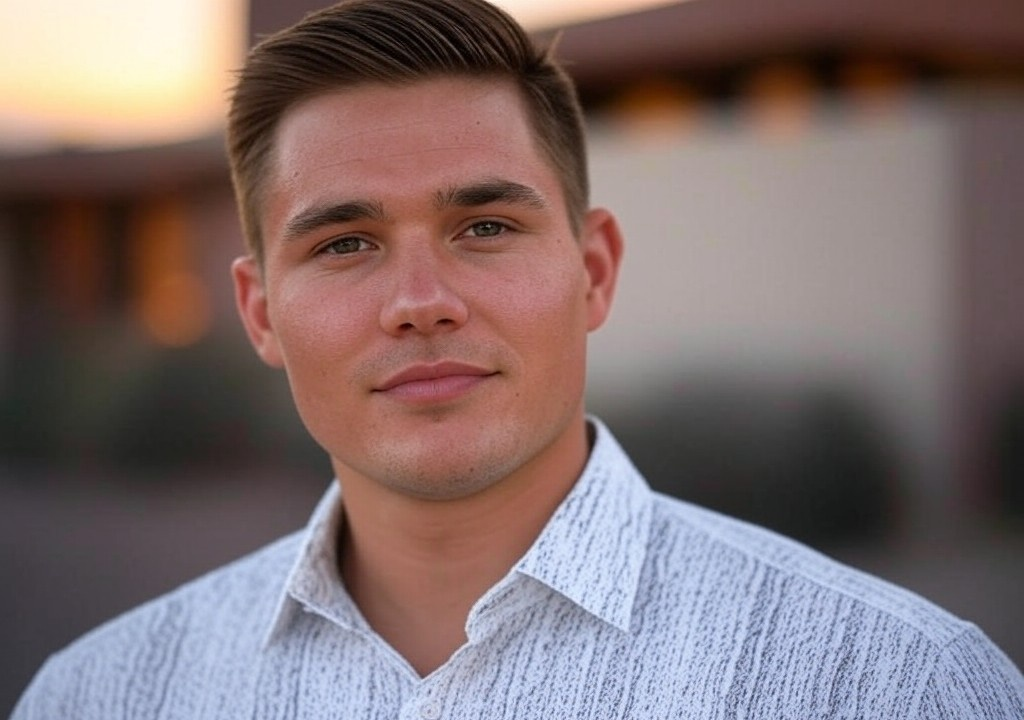There’s an old saying out here in the desert: “The smallest cactus can have the sharpest thorns.” While you could take that as a warning to not underestimate prickly plants, I’ve come to think of it as a metaphor for life’s tiniest changes packing the biggest punch. A couple of years ago, I stumbled across one of those “cactus moments.” It was a habit so simple, so seemingly insignificant, that I almost didn’t recognize how much it transformed my relationships—and my life.
Spoiler alert: my magical habit wasn’t journaling (respect to the leather-bound notebook crowd) or signing up for an expensive retreat in Sedona, where crystals may or may not save your soul. No, this was smaller. Simpler. And, I dare say, much more effective: I learned to pause—and I mean really pause. Before reacting. Before overthinking. Before hitting “send” on that oh-so-clever text I thought was going to make me look cool but instead made me look like the emotional equivalent of burnt toast.
Let me explain how that sliver of stillness saved me from myself.
The Overthinking Rabbit Hole (Been There?)
Here’s the scene: You’re mid-conversation with someone you really like. Maybe they say something that rubs you the wrong way. Or they leave your message on “read” for—wait for it—FOUR HOURS. Naturally, your brain kicks into overdrive like the finale of a reality dating show. What do they mean? Are they pulling back? Did your last text come across weird? Is this the conversational equivalent of Beyoncé going solo? Cue the panic spiral.
I was the king of overthinking. If overanalyzing texts were an Olympic sport, pass me my gold medal. Growing up in a house where perfection was the standard—pristine golf swings, properly folded linens, and dinner-table etiquette—it always felt like there was a “right” way to handle things. That let’s-fix-this mindset followed me into my relationships, where I tried to micromanage every little interaction for, I guess, optimal results? (Hint: love is NOT a PowerPoint presentation.)
The problem was, my instincts led me to immediate action rather than nuance. Did I try to “clear things up” prematurely? Oh, absolutely. Did I misread situations or create tension where there was none? Guilty as charged. My quick reactions became a self-sabotage machine, fueled by my inability to just. Chill. Out.
Insert the Pause Button Here
It wasn’t until one quiet Sunday morning—a slow, hot Sonoran sunrise painting my kitchen in shades of orange and gold—that I had my breakthrough. I was mid-crisis (or at least, what felt like one): waiting for a text reply from someone I was deeply interested in. My fingers hovered over my phone like a cowboy in a Western showdown, ready to shoot off some over-explaining message about how “I didn’t mean to be weird.” And then…I stopped.
Maybe it was the calm of the day, or the fact that my coffee hadn’t fully kicked in yet, but something told me: put the phone down. Walk away. Go hike.
That pause turned into a pattern, and eventually, a habit—not just in texting, but in life. Whenever I felt the emotional firework about to go off (be it irritation, impatience, or insecurity), I forced myself to stop. To pause. To let the thought marinate instead of making it my main course. Here’s what I discovered:
- Pausing gives you clarity. A breather lets raw emotions settle, like sand in a storm. And clarity? That’s a gift.
- Pausing sparks empathy. Instead of assuming the worst—“They must be ignoring me!”—I started imagining kinder scenarios. Maybe they’re just busy. Maybe their phone is in the dreaded cushion crevice. Empathy eased my anxiety.
- Pausing makes you powerful. Reactivity reminds me of tumbleweeds. Aimless, chaotic, and uncontrollable. But a pause? That’s rooted, steady, intentional. It’s the difference between chasing something and choosing something.
Small Pause, Big Results
This habit wasn’t just a dating lifesaver—it spilled over into every corner of my world. At work, my emails became more thoughtful (and let’s be honest, WAY less cringe). In friendships, I stopped taking silence personally and started showing up with more patience. Romantic relationships improved because I wasn’t hurling assumptions like a frisbee into the void.
And honestly, a lot of self-sabotage is nothing more than knee-jerk reactions, right? The awkward late-night texts, pointless arguments, or even ghosting "in self-defense.” When you pause, you short-circuit that impulsive, self-protective instinct that often does more harm than good.
Case in point: I once paused before prematurely “breaking things off” with someone because I feared they were losing interest. Turns out, they were just stressed about work. That relationship? It grew into something beautiful because I didn’t let my insecurities drive. A two-second pause changed the outcome of an entire chapter of my life.
How to Build Your Pause Habit
A pause might feel unnatural at first—trust me, I know. But the beauty of small habits is that they eventually grow roots. Here’s how to start growing this one:
-
Name Your Triggers. Is it waiting for a text? A sarcastic comment from your partner? Identifying what gets your emotions buzzing helps you recognize the perfect pause moments.
-
Count to Ten. Yes, this sounds like something your fourth-grade teacher would suggest, but don’t knock it till you try it. A ten-second breathing window is great for letting your brain catch up to your heart.
-
Channel Distraction. When pausing feels impossible (hello, overanalyzing brain), distract yourself. Take a walk. Do the dishes. Rearrange your bookshelf for the fourth time.
-
Imagine the “Kind Story.” Instead of assuming the worst, train yourself to assume the best—or at least something neutral. Imagine your partner didn’t reply because they fell asleep watching TikToks, not because they despise you.
-
Journal Post-Pause. Later, reflect on how pausing changed your situation. Did the text distraction dissipate? Did a tense moment with your partner lighten instead of escalate? Seeing those patterns motivates you to pause more often.
Rome Wasn’t Built in a Day (And Neither Are Great Relationships)
The beauty of the pause is that it’s small, achievable, and unreasonably impactful. It’s the anti-hustle habit in a world that glorifies constant activity. When you give yourself permission to pause, you’re allowing space for better decisions, deeper empathy, and stronger connections. You’re saying, “I trust myself enough to wait.” And that? That’s powerful.
So, the next time you feel that pang of impatience—when someone doesn’t text back fast enough, or an argument's tension crackles like dry desert air—pause. Take a breath. Maybe it’s not about winning the moment but about keeping the bigger picture intact.
And remember: even the smallest cactus can leave the deepest impression.




















